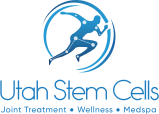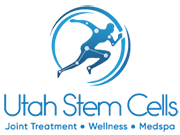Autoimmune diseases are conditions in which the patient’s immune system generates cellular and antibody responses to substances and tissues normally present in the body. This might be restricted to one organ or involve a particular tissue in different places. As a result of this immune response, damage to different organs occurs. Examples of autoimmune diseases that have responded to stem cell therapy either in animals or humans include rheumatoid arthritis, multiple sclerosis, and lupus.
Currently, autoimmune conditions are treated with immune suppressive agents such as steroids, methothrexate, cyclosporine, gold, and more recently infliximab (Remicade). Despite inducing temporary improvement, these approaches possess the possibility of long-term adverse effects, as well as need for life-long treatment.
Stem cell therapy has been demonstrated to induce profound healing activity in animals with various forms of autoimmune disorders. Besides healing damaged tissues, stem cells have the unique ability to modulate the immune system so as to shut off pathological responses while preserving its ability to fight off disease. Stem cells and specifically, mesenchymal stem cells home to inflamed tissue and start producing anti-inflammatory agents. These mediators act locally and do not suppress the immune response of the patient’s whole body. Additionally, mesenchymal stem cells induce the production of T regulatory cells, a type of immune cell whose function is to protect the body against immunological self-attack.
The adult stem cells used to treat autoimmune diseases at the Stem Cell Institute come from human umbilical cord tissue (allogeneic mesenchymal). These stem cells are expanded at Medistem Panama’s state-of-the-art laboratory.
The mesenchymal stem cells we use are recovered from donated umbilical cords following normal, healthy births. Each mother has her medical history screened and is tested for infectious diseases. Proper consent is received from each family prior to donation.
All umbilical cord-derived stem cells are screened for infectious diseases to International Blood Bank Standards before they are cleared for use in patients.
Only a small percentage of donated umbilical cords pass our rigorous screening process.
- Since HUCT mesenchymal stem cells are immune system privileged, cell rejection is not an issue and Human Leukocyte Antigen (HLA) matching is not necessary.
- The stem cells with the best anti-inflammatory activity, immune modulating capacity, and ability to stimulate regeneration can be screened and selected.
- Allogeneic stem cells can be administered multiple times over the course of days in uniform dosages that contain high cell counts.
- Umbilical cord tissue provides an abundant supply of mesenchymal stem cells.
- No need to collect stem cells from the patient’s hip bone or fat under anesthesia, which especially for small children and their parents, can be an unpleasant ordeal.
- There is a growing body of evidence showing that umbilical cord-derived mesenchymal stem cells are more robust than mesenchymal stem cells from other sources.
- No need to administer chemotherapy drugs like Granulocyte-colony stimulating factor (G-CSF or GCSF) to stimulate the bone marrow to produce granulocytes and stem cells and release them into the bloodstream.
Human umbilical cord tissue-derived mesenchymal stem cells (MSCs) that were isolated and grown in our laboratory in Panama to create master cell banks are currently being used in the United States under US FDA regulation.
These cells serve as the starting material for cellular products used in MSC clinical trials for two Duchenne’s muscular dystrophy patients under US FDA’s designation of Investigational New Drug (IND) for single patient compassionate use. (IND 16026 DMD Single Patient).
The body’s immune system is unable to recognize umbilical cord-derived mesenchymal stem cells as foreign and therefore they are not rejected. HUCT stem cells have been administered thousands of times at the Stem Cell Institute and there has never been a single instance rejection (graft vs. host disease). As a matter of fact, allogeneic (not the patient’s own) mesenchymal stem cells are approved to treat graft vs. host disease in Canada and New Zealand.
Umbilical cord-derived mesenchymal stem cells also proliferate/differentiate more efficiently than “older” cells, such as those found in the fat and therefore, they are considered to be more “potent”.

